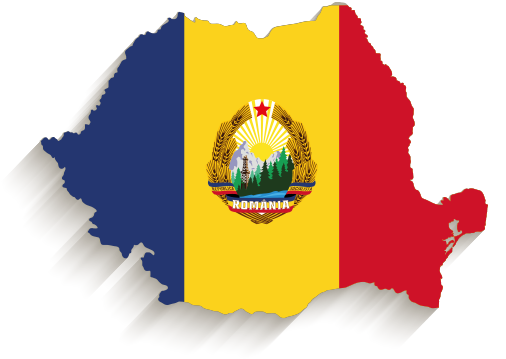(Grant Agreement n. 669194)
According to the Romanian legislation regulating the country’s foreign trade and international economic cooperation, Romanian foreign trade enterprises were subordinated to the Ministry of Foreign Trade. The Ministry of Foreign Affairs also participated in the coordination of the relations of these enterprises with different foreign entities. In accordance with their competences, besides the Ministry of Foreign Trade, foreign trade enterprises could be subordinated to other ministries as well – Metalimportexport to the Ministry of Metallurgical Industry, Petrolexport, Chimimportexport and Azoexport to the Ministry of the Chemical Industry, Prodexport, Romagricola and Romagrimex to the Ministry of Agriculture and Foodand Confex to the Ministry of Light Industry. The National Bank and the Romanian Bank of Foreign Trade were also entitled to coordinate or control some aspects of the activity of these enterprises.
By law, the competences of foreign trade organisations were: fulfilling the export plan and selling Romanian goods on foreign markets at the best conditions; fulfilling the import plan according to the needs and interests of Romanian production units; negotiating and signing contracts with foreign entities; permanently and systematically monitoring foreign markets and informing production units in Romania about the level of prices and the tendencies observed in those markets; supporting production units to adapt their production to the demand in foreign markets; participating in fairs and exhibitions abroad; opening and managing their own deposits and shops abroad and selling their products abroad; and sending abroad their own representatives. In drawing up its import-export plan, a foreign trade enterprise would take into consideration its own studies and monitoring of foreign markets and the contracts it had signed with foreign partners.
When representing Romania’s interests abroad, the activity of the representatives of foreign trade enterprises was subordinated to the economic departments of Romania’s diplomatic missions and to its commercial agencies and offices, which were all formally placed under the control and guidance of the head of the diplomatic mission. The duties of the representatives abroad of foreign trade enterprises were: to secure the fulfilment of the foreign trade tasks of the entity they represented; to establish direct contacts with the management of foreign enterprises and firms; to monitor foreign markets from the perspective of Romania’s interest in increasing the volume of its exports, the efficiency of its foreign trade operations and the diversification of its exports; to draw up studies and analyses regarding the short-term situation of foreign markets with regard to the sectors and products their foreign trade enterprise represented abroad; and to make proposals regarding the ways in which the presentation of Romanian goods abroad or Romania’s network of shops abroad should be organised.
The foreign trade enterprises and other economic entities with foreign trade competences functioned within the national plan for foreign trade and economic and technical international cooperation, which was correlated with and part of Romania’s national plan for economic development. The plan for foreign trade and economic and technical international cooperation was drawn up by the Ministry of Foreign Trade and the State Planning Committee, based on proposals by other ministries and central state institutions. Therefore, the foreign trade organisations’ competences were mainly executive in nature and only related to their sector of activity. To make proposals and suggestions with regard to Romania’s foreign trade in general, its commercial relations with the West or with a specific country was not part of their duties. Their studies, analyses and reports, however, would be taken into consideration in different ministries when making relevant decisions.
*This text summarises some of the research findings of PanEur1970s team member Elena Dragomir, which are published as a chapter in PanEur1970s’ academic edited book. For a link to the e-book, please see Romania’s “Overview” webpage of this map.
|
Note of proposals regarding the conclusion of arrangements on agricultural products between Romania and the EEC countries
AMAE, Fond 1970, Problem 241/2C52/1970, Common Market, Belgium, p. 2-4 | 5/05.01.1970
Note of proposals regarding the conclusion of arrangements on agricultural products between Romania and the EEC countries. It discusses the examples provided by Hungary and Poland in this regards. - Available only in the Archive: https://www.mae.ro |
